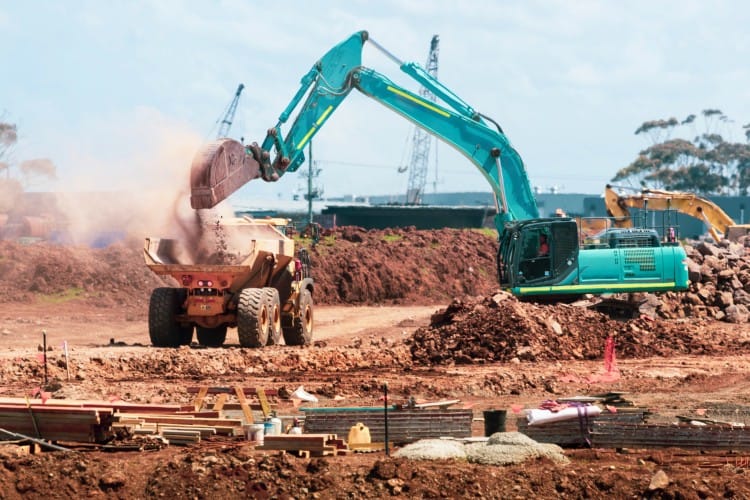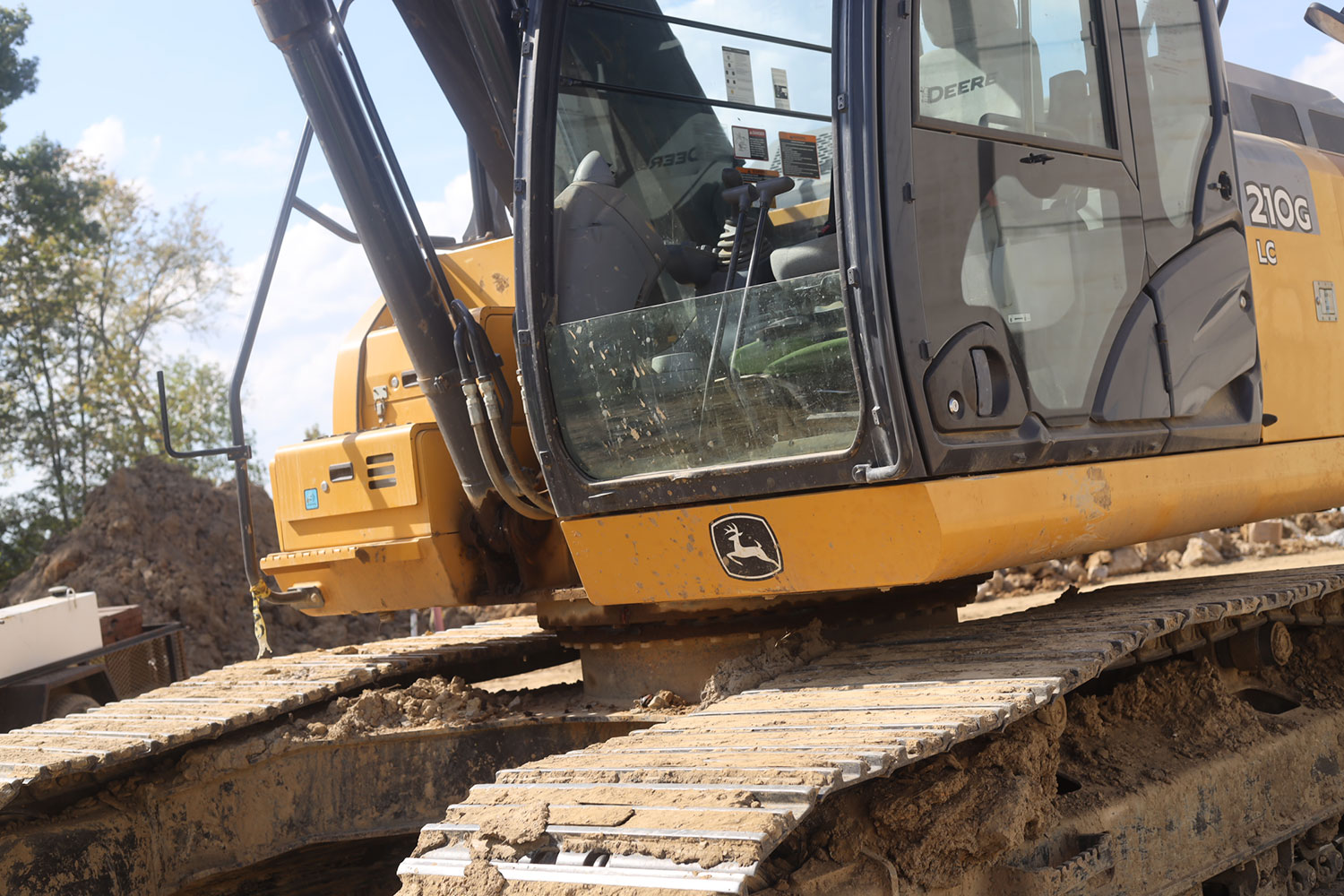Necessary Tips for Handling Heavy Devices Rental Contracts and Logistics Successfully
Efficiently handling heavy equipment rental agreements and logistics is vital for the success of any type of project that counts on these sources. A thorough understanding of rental terms, combined with accurate evaluation of tools needs, lays the foundation for desirable arrangements. Coordinating transport logistics and preparing for continuous upkeep can significantly lower unforeseen expenses and hold-ups. Nonetheless, the complexities of these aspects often existing obstacles that need calculated foresight. What are the crucial considerations that can change these potential mistakes into possibilities for efficiency and cost-saving?
Understand Rental Terms
Understanding rental terms is important for successful hefty tools management. The rental period specifies the duration for which the equipment is rented, influencing budgeting and task timelines.
Furthermore, it is critical to comprehend the upkeep responsibilities described in the arrangement. Commonly, rental business keep the tools, yet comprehending who is accountable for routine checks and repair work is essential to stop functional disturbances. Furthermore, terms may consist of stipulations worrying obligation for problems or theft, which can have severe economic effects if not appropriately recognized.

Assess Tools Requirements
Examining tools needs is an important action for any task supervisor aiming to maximize resource allotment and enhance operational effectiveness. This process entails a thorough assessment of the project requirements, including particular tasks, timelines, and the kind of equipment required to attain wanted results.
Begin by recognizing the range of the task and the jobs that will be performed. Consider variables such as the terrain, the range of operations, and any prospective challenges that can affect devices choice. Engaging with team members that will operate the machinery can give useful insights right into sensible demands and preferences.

Following, assess the capacity and capabilities of offered equipment alternatives. It is necessary to match the ideal tools to the tasks handy, ensuring that it can manage the expected work without compromising safety or performance.
In addition, consider the rental period and regularity of usage. Understanding these components can assist figure out whether renting or acquiring is the most cost-effective option. By carrying out a thorough evaluation of devices needs, project managers can make informed choices that result in improved performance and decreased operational expenses.
Negotiate Efficiently
As soon as the equipment demands are clearly identified, the next action entails reliable arrangement with rental business to secure positive terms. A well-prepared arrangement you can try these out technique is necessary for achieving the most effective feasible offer. Begin by looking into different rental business to recognize their pricing structures, stock availability, and track record. This expertise will certainly equip you throughout arrangements and help you establish sensible expectations.
When approaching the arrangement table, be clear about your requirements, including the type of equipment, rental duration, and any type of extra services you may require. This transparency allows rental companies to supply tailored solutions that can fulfill your details requirements (forklift rental). Don't be reluctant to ask for discounts, especially for long-lasting leasings or bulk orders, as lots of firms want to offer giving ins to safeguard larger contracts
Furthermore, take into consideration working out terms related to distribution, upkeep, and insurance coverage fees. These factors can dramatically influence the general expense and should be explicitly detailed in the rental arrangement. Ultimately, ensure that all agreed-upon terms are recorded in composing to avoid misconceptions and safeguard your passions throughout the rental duration. Reliable arrangement not only leads to expense financial savings however likewise establishes a positive connection with the rental company.
Coordinate Transportation Logistics
Coordinating transport logistics is an essential element of managing hefty equipment rental contracts. Reliable transport ensures that equipment is delivered in a timely manner and in optimal condition, thus decreasing downtime and enhancing job performance. To achieve this, it is vital to establish a comprehensive logistics plan that go right here lays out the entire transport process from pick-up to distribution.
Begin by evaluating the specific transportation demands based upon the kind and dimension of the tools involved - construction equipment rentals. Involve with trustworthy transportation service providers that focus on heavy equipment to guarantee they possess the needed know-how and tools, such as flatbed vehicles or specialized trailers. Go over variables such as weight limitations, course constraints, and required licenses to prevent unexpected hold-ups
Additionally, keep open communication with both the rental business and the transportation provider to collaborate timetables efficiently. By diligently coordinating transport logistics, you can copyright the integrity of your rental arrangement and help with smooth task execution.
Prepare For Upkeep and Support

In addition, it is essential to communicate directly with the rental provider concerning upkeep obligations. Some arrangements may include maintenance as part of the rental solution, while in various other cases, the onus might drop on the renter. Recognizing these terms will help prevent unforeseen costs and obligations.
Furthermore, having accessibility to technical support can be important. Guarantee that the rental business provides 24/7 support or an emergency contact, enabling swift resolution of any type of devices issues. Training your team on appropriate tools usage and routine checks can additionally dramatically boost functional performance.
Final Thought
In final thought, reliable management of heavy devices rental contracts and logistics joints on a comprehensive understanding of rental terms, precise assessment of devices demands, and adept arrangement abilities. Stressing clear interaction with all stakeholders continues to be important in navigating the complexities of devices leasing and logistics monitoring.
Properly taking care of heavy tools rental contracts and logistics is vital for the success of any kind of job that relies on these resources. By extensively examining and understanding these rental terms, services can make informed decisions, minimize dangers, and make sure that their heavy equipment management straightens with job objectives and economic restrictions.Collaborating transportation logistics is an important element of handling heavy equipment rental arrangements.In final thought, reliable administration of heavy devices rental contracts and logistics hinges on a like it complete understanding of rental terms, precise assessment of devices needs, and skilled arrangement abilities. Stressing clear interaction with all stakeholders stays critical in browsing the complexities of tools leasing and logistics administration.